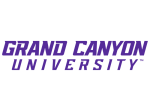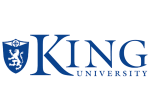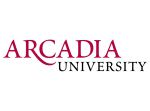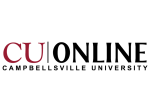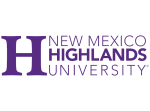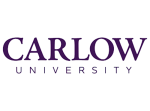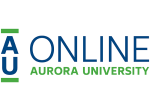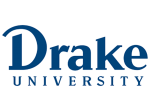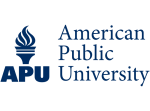 The recent prioritization of health in society means that healthcare professionals and patients alike are benefiting from increased access to services. More holistic services are being formally recognized as aspects of healthcare, which means that more opportunities are on the horizon for our healthcare service providers.
The recent prioritization of health in society means that healthcare professionals and patients alike are benefiting from increased access to services. More holistic services are being formally recognized as aspects of healthcare, which means that more opportunities are on the horizon for our healthcare service providers.
The scope of healthcare is so immense that it covers any and all career choices related to health or the human body. For students who are unsure about what direction they want to take their healthcare education in, there are general degrees like health science that provide the foundation for many different careers and opportunities. In the coming years, it is anticipated that healthcare is going to gain more jobs than any other occupation in the United States. So, for budding professionals, or existing professionals who are considering a career change—there is no time like the present!
THE CAREER PATH
Individuals may be driven to careers in healthcare for many unique reasons that all stem from a desire to be of service to others. Some professionals are attracted to the diversity in healthcare careers allowing them to use their unique professional strengths to provide effective services. Many professionals seek careers in healthcare because they are accessible; whether you are fresh out of high school and ready to start a career in the health field, or whether you have an existing career that you want to build on, there are opportunities in this field. Many professionals enter the field because they know they can feel confident about their employment for years to come. The United States Department of Labor emphasizes that healthcare is expected to add more jobs between now and 2024 than any other occupation.
Because healthcare covers such a broad scope of professions and specializations, the responsibilities and requirements of different healthcare positions can vary greatly. The range of positions in healthcare includes some professions, such as athletic training, that don’t require any college education, while others require postgraduate advanced degrees, like the doctorate in pharmacy (Pharm.D.), in order to qualify for licensure. Most professionals will seek out certifications specific to their specialization in order to increase their legitimacy and competitiveness. Various professional organizations administer certifications to their respective healthcare professionals.
WHO IS THE IDEAL CANDIDATE?
Of course, all professionals who work in healthcare services must be able to communicate well with both patients as well as an array of healthcare professionals. They must be detail-oriented, critical-thinking, and resourceful enough to come up with creative solutions to problems. Healthcare careers provide the space for you to explore your unique strengths, interests, and goals to find the role that suits you best. If your interest is in educating members of the community to enhance their nutritional intake through food and lifestyle choices, then a degree in nutrition may be appropriate for you. If you are interested in information technology and you are passionate about healthcare, then a degree in health informatics could be the right decision for your career. No matter why you are passionate about healthcare, as long as you are driven to learn and work hard, then there are opportunities to build a sustainable career out of your passion.
BEST HEALTHCARE JOBS
As the baby boomers continue to age and demand more healthcare resources, and the conversation around affordable access to healthcare continues in America, jobs in healthcare are skyrocketing. Healthcare is expected to create more jobs than any other occupation in the coming years, so the time is ripe for prospective healthcare professionals.
Here are some of the best healthcare jobs:
- Audiologist
Audiology is the branch of healthcare concerned with the sense of hearing, meaning that audiologists are the medical professionals who focus on hearing and ear health. Like most other physicians, audiologists are required to obtain a doctorate degree in audiology (Au.D.). before they can become certified to practice. The advanced education can be built off of an academic career with a focus in health science, or any number of related fields. In general, the advanced education pays off—the average salary of an audiologist is more than $75,000 each year. The demand for qualified audiologists is expected to skyrocket with a 29% increase as the population continues to age and require more professionals to address hearing issues.
- Dental Hygienist
In the same way that audiologists are focused on ear health, dental hygienists are focused on mouth health and hygiene. Dental hygienists can kick off their career a little bit quicker than audiologists however—typically dental hygienists only need their associate’s degree and the appropriate license for their state and scope of practice. This particular healthcare profession earns almost as much as audiologists—an average of almost $73,000 each year, and is anticipated to grow almost as fast as audiology—by 19%.
- Pharmacist
Pharmacists work directly with the prescriptions of patients; they administer medications and advise patients on prescription usage and healthy lifestyle choices. Careers in pharmacy demand a Pharm.D. from an accredited program and multiple exams in order to receive a licensure. Pharmacy careers are among the slowest-growing healthcare careers at a mere 3% increase anticipated in the coming years. However, for competitive applicants, it is a career with an average salary of over $100,000 a year.
WHAT SHOULD I LOOK FOR?
Accreditation is a priority, especially when licensure is required. All degree programs in our directory have been screened for proper accreditation. The best programs will offer opportunities for hands-on experience in the field of your choice, will offer plenty of resources for students’ professional growth, and will leave room for future opportunities for educational advancement. If you are looking into a career that requires certifications, you may be able to find programs that prepare students better than others to meet the certification requirements.
Programs that are related to healthcare may vary greatly between academic concentrations and professional goals of students. Many healthcare professions offer degrees or certifications that are standardized by professional organizations. The fundamentals of healthcare careers are rooted in shared values and basic knowledge of the practice. All healthcare professionals need to have a thorough understanding of the human body and its internal interactions and they need to feel confident about the ethical requirements of their career.
Healthcare degrees will introduce students to topics such as:
- Human Anatomy
- Biology
- The United States Healthcare System
- Community Health
- Medical Terminology
- Medical Ethics
Advanced programs and specialized certification courses will cover more narrowly focused subjects including:
- Periodontics
- Diet and Disease
- Pharmacy Law
- Radiology Pathology
COST
The cost of a program absolutely depends on your professional goals and priorities. Certifications and degrees can range from hundreds of dollars to hundreds of thousands of dollars, so careers in healthcare are truly a unique opportunity to set your own direction. Our rankings reveal an online bachelor’s in healthcare can cost as little as $17,892 or as much as $135,720. An online master’s in healthcare is a bit cheaper. The most affordable programs cost less than $7,500 while the most expensive cost over $54,000.




